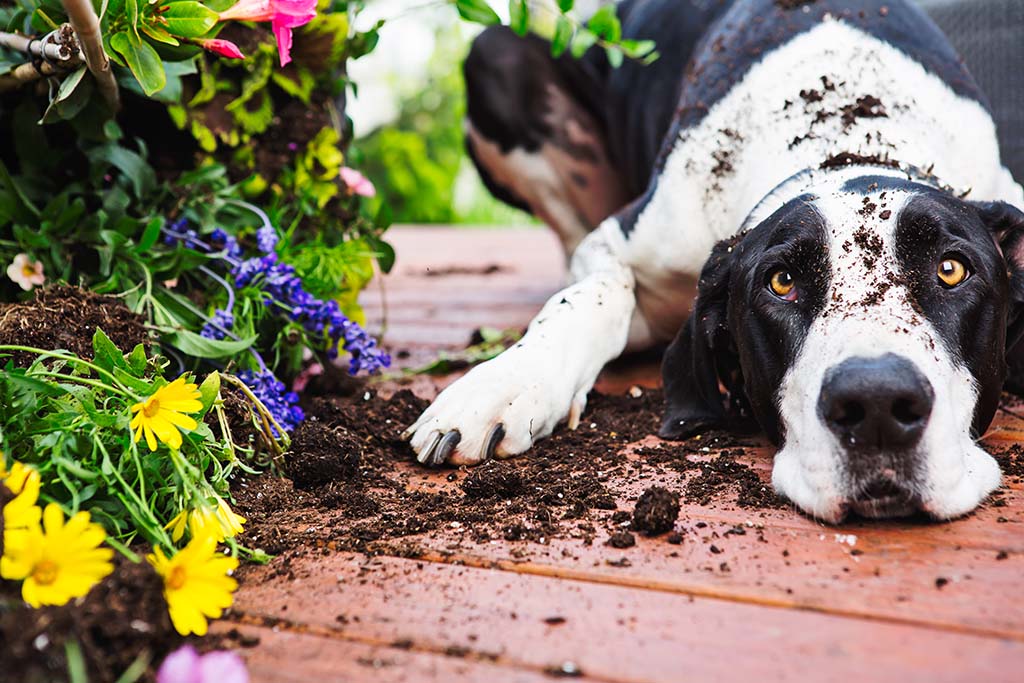Plant a Pet Safe Garden
Posted on Monday Jun 03, 2024 at 01:10PM in Lawn and Garden

Plant a Pet Safe Garden
If you share your yard with pets, you’ll want to make sure the space is safe. After all, dogs love playing fetch in the grass and sniffing around the landscaping, while cats enjoy napping in the sun and watching the birds.
Unfortunately, outdoor plants, insecticides, rodent poisons, and other gardening products are leading causes of trips to the vet. Avoid exposing your pets to these toxins by following these five tips!
- Know which plants are toxic to pets
Some of the most popular garden plants are toxic to dogs and cats, including tulips, azaleas, lilies, begonias, hosta, and clematis. These plants can cause excessive drooling, vomiting, and diarrhea when ingested. Consider removing them from your garden and replacing them with more pet-friendly flowers such as petunias, marigolds, sunflowers, and zinnias. Click here for a complete list of toxic plants.
- Prevent access to the compost pile
Pets should not be allowed to sniff and play in your compost pile. Some compostable foods such as garlic, onions, and grapes are toxic to dogs and can cause severe illness if ingested. Even fruits and vegetables that are typically safe for pets to eat can become dangerous in a compost pile once the produce decomposes and mold and fungus form. Using compost bins or installing a fence around the pile are great ways to keep animals out.
- Choose mulch that is safe for your pets
Generally, mulch poses little threat to cats. Dogs, on the other hand, like to chew on some types of mulch, which can be dangerous depending on the type that you buy. Cocoa bean mulch, which is made from the hulls of cocoa beans, is particularly toxic to dogs and contains the same stimulants that make chocolate harmful to dogs. Instead, opt for wood chips, pine, or cedar mulches as an alternative groundcover if you have pets.
- Use caution with chemicals
Not all insecticides and fertilizers that you use to keep your yard pest and weed free are pet friendly, so read the labels before purchasing. Carefully follow the application recommendations as some manufacturers may suggest keeping your pets off the grass or out of the garden for 24 to 48 hours after spraying.
- Eliminate standing water
Pets may be tempted to turn puddles, ponds, and birdbaths into water dishes when it’s hot outside, so dump standing water and add pumps to birdbaths to keep water moving and decrease the chance of spreading illness. Vaccinate your pets for leptospirosis, a bacterial infection which is most prevalent in the late summer and early fall. Mosquitos breeding in standing water also pose a threat to pets as they are common carriers of heartworm disease. Monthly preventatives can be used to reduce the risk.
Stockdale’s is here for all your lawn, garden, and pet care needs!
Comments are closed for this entry.
